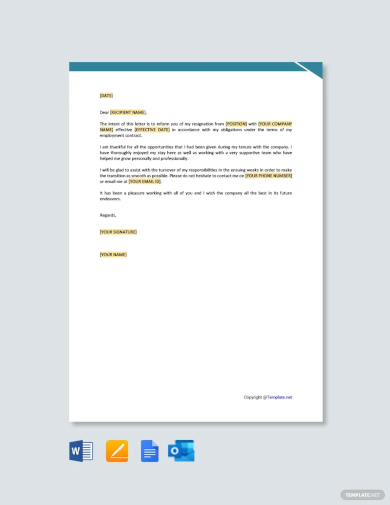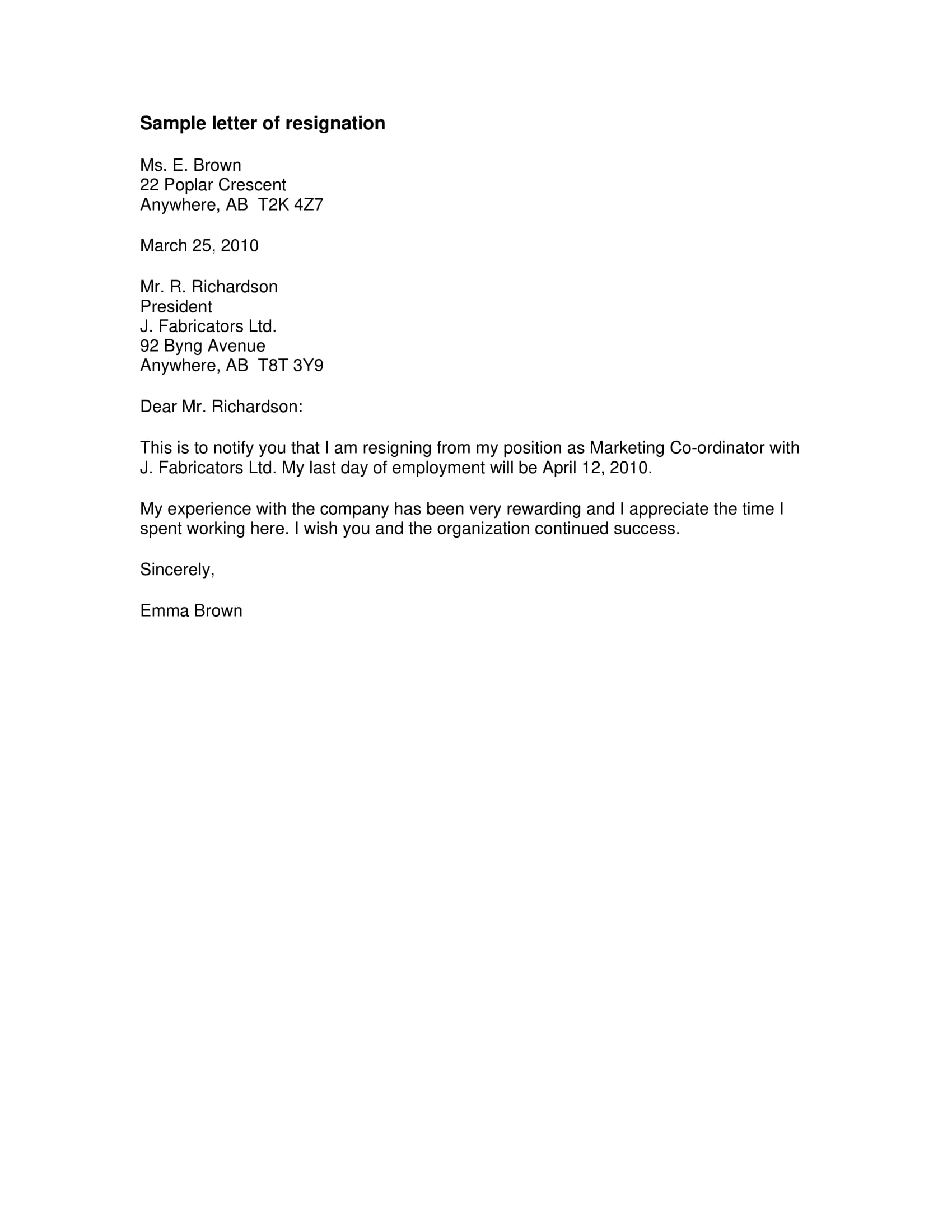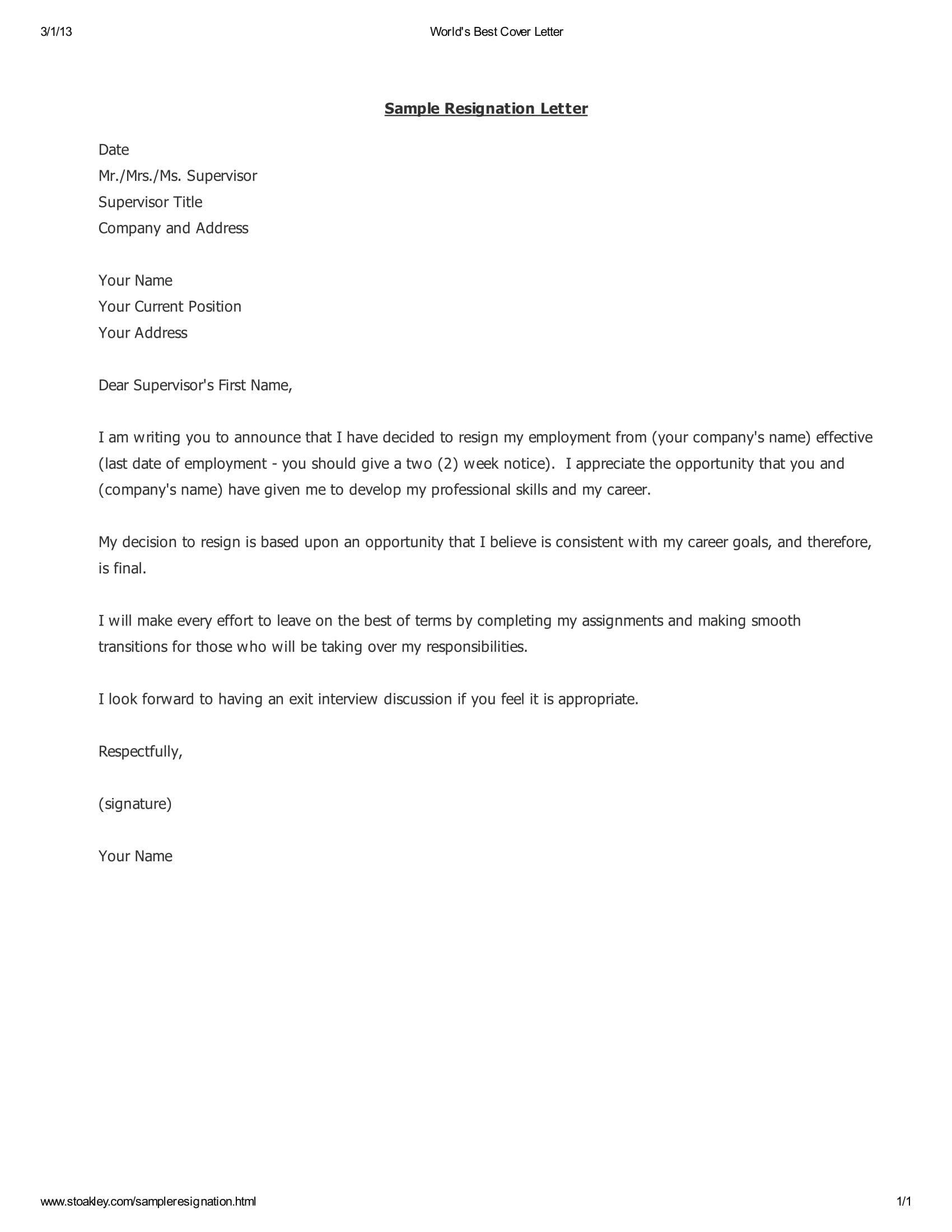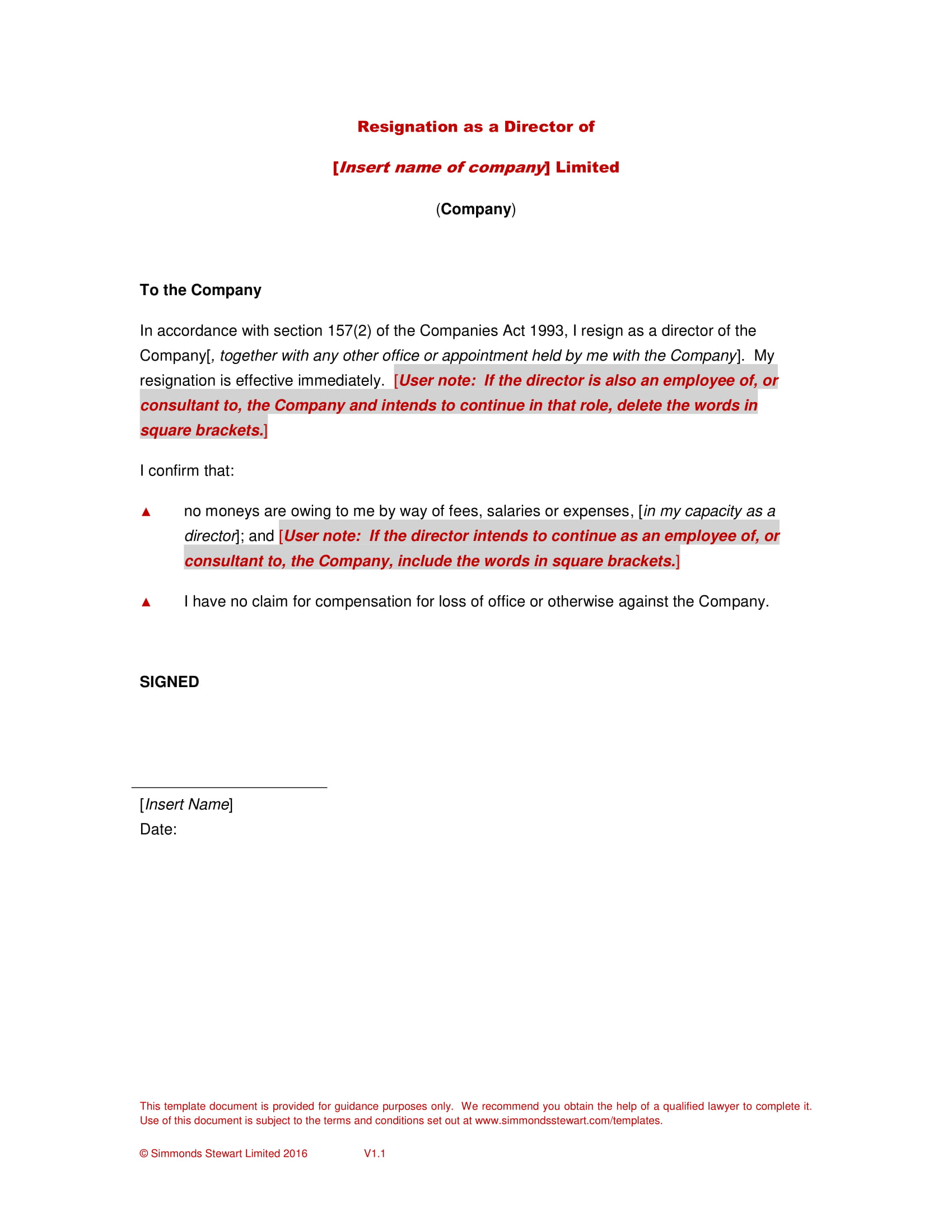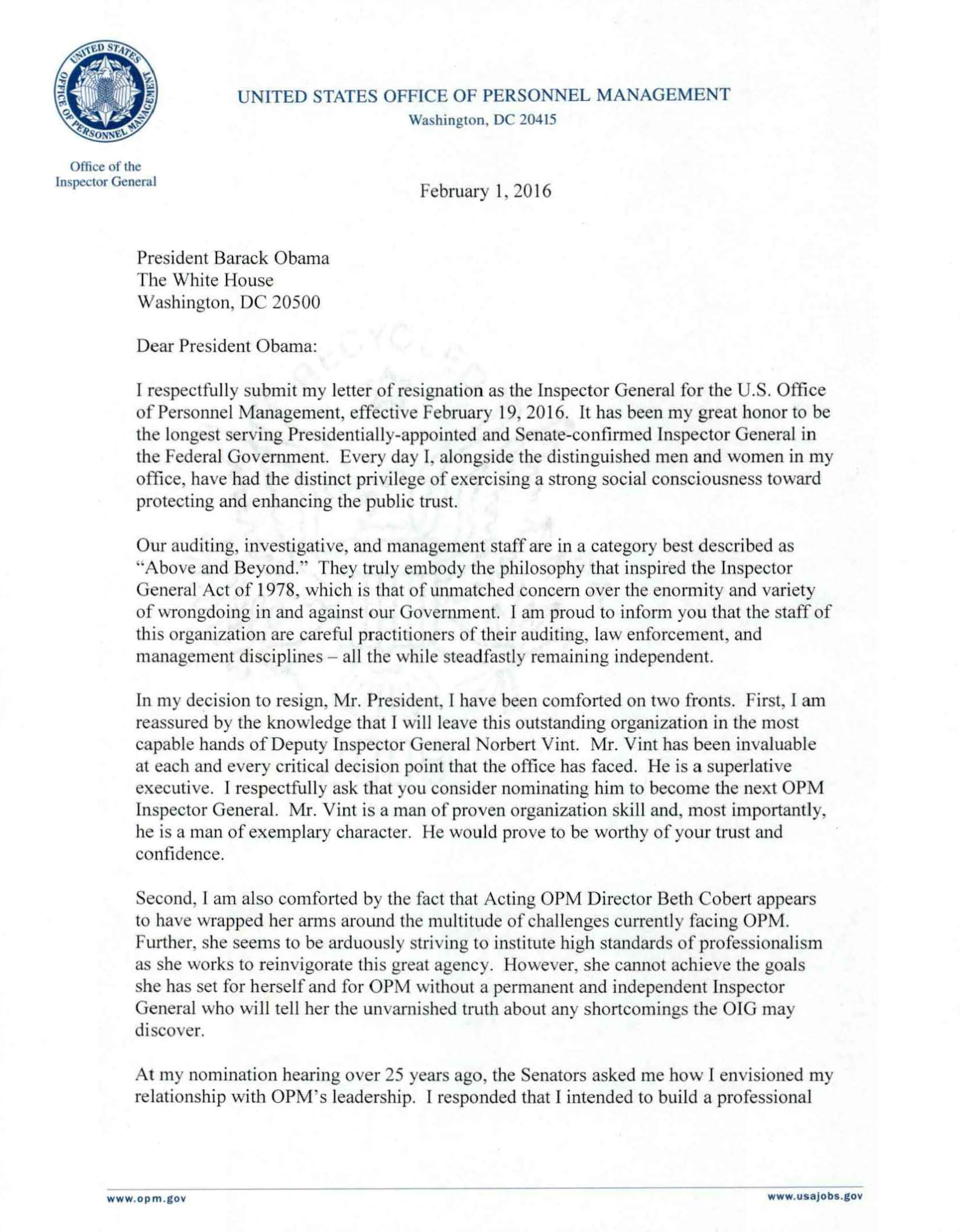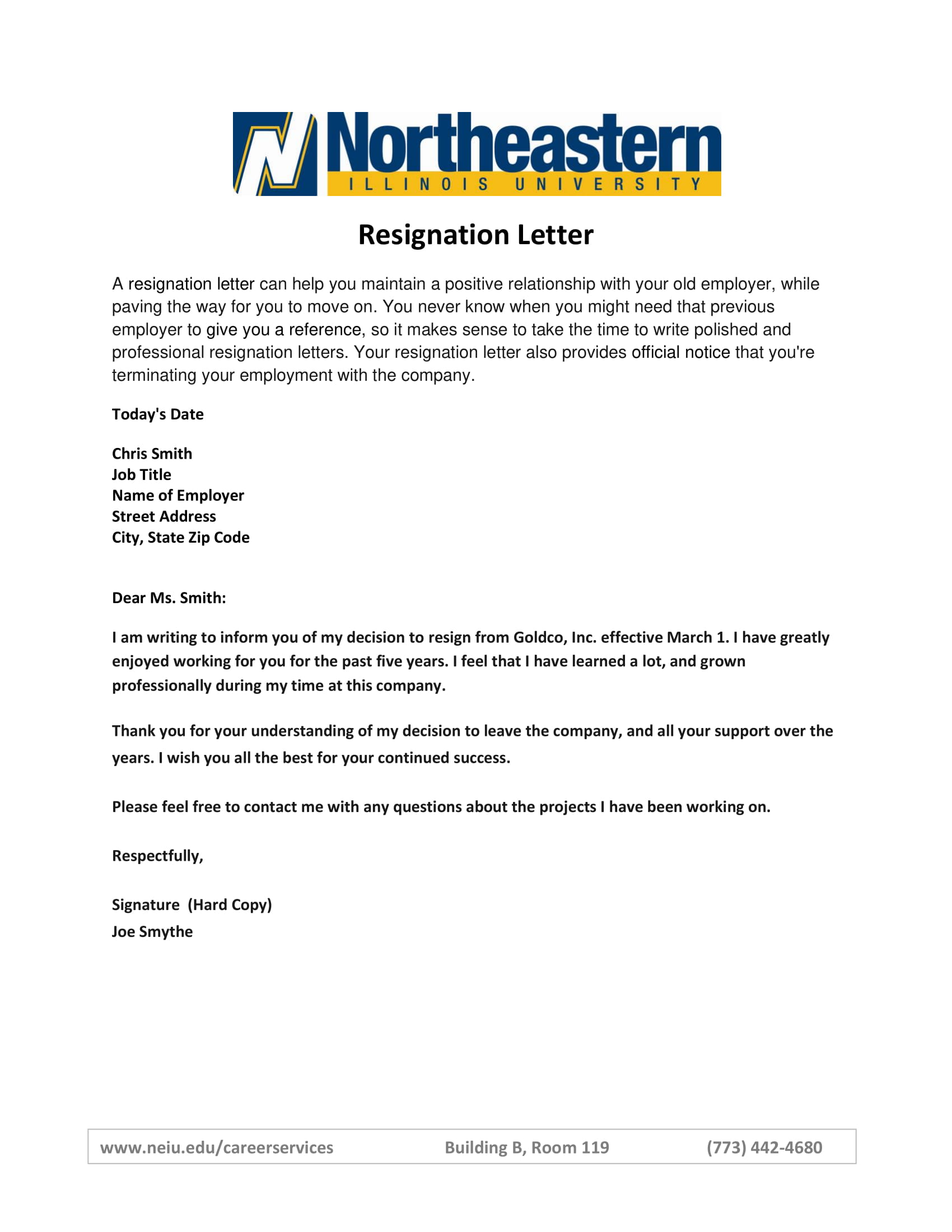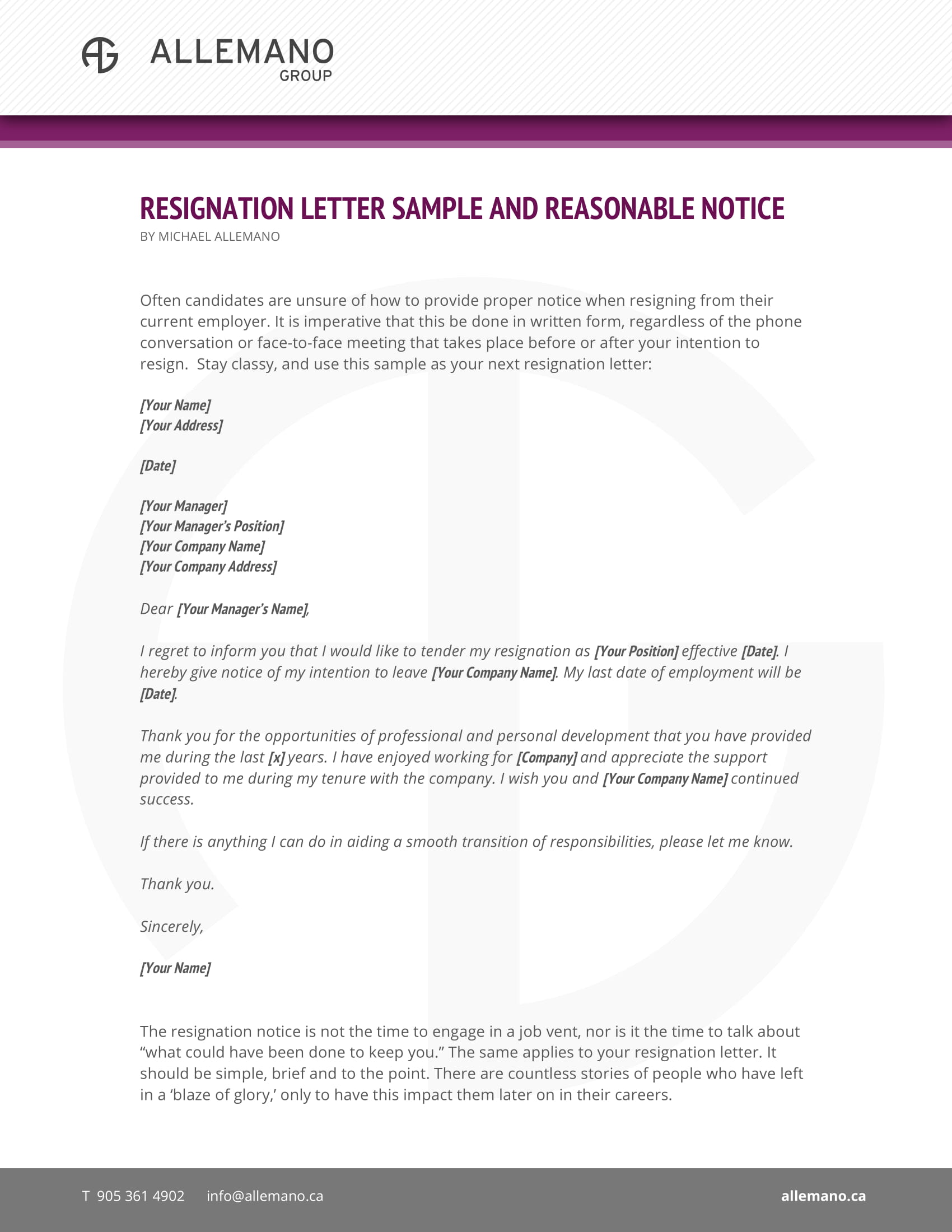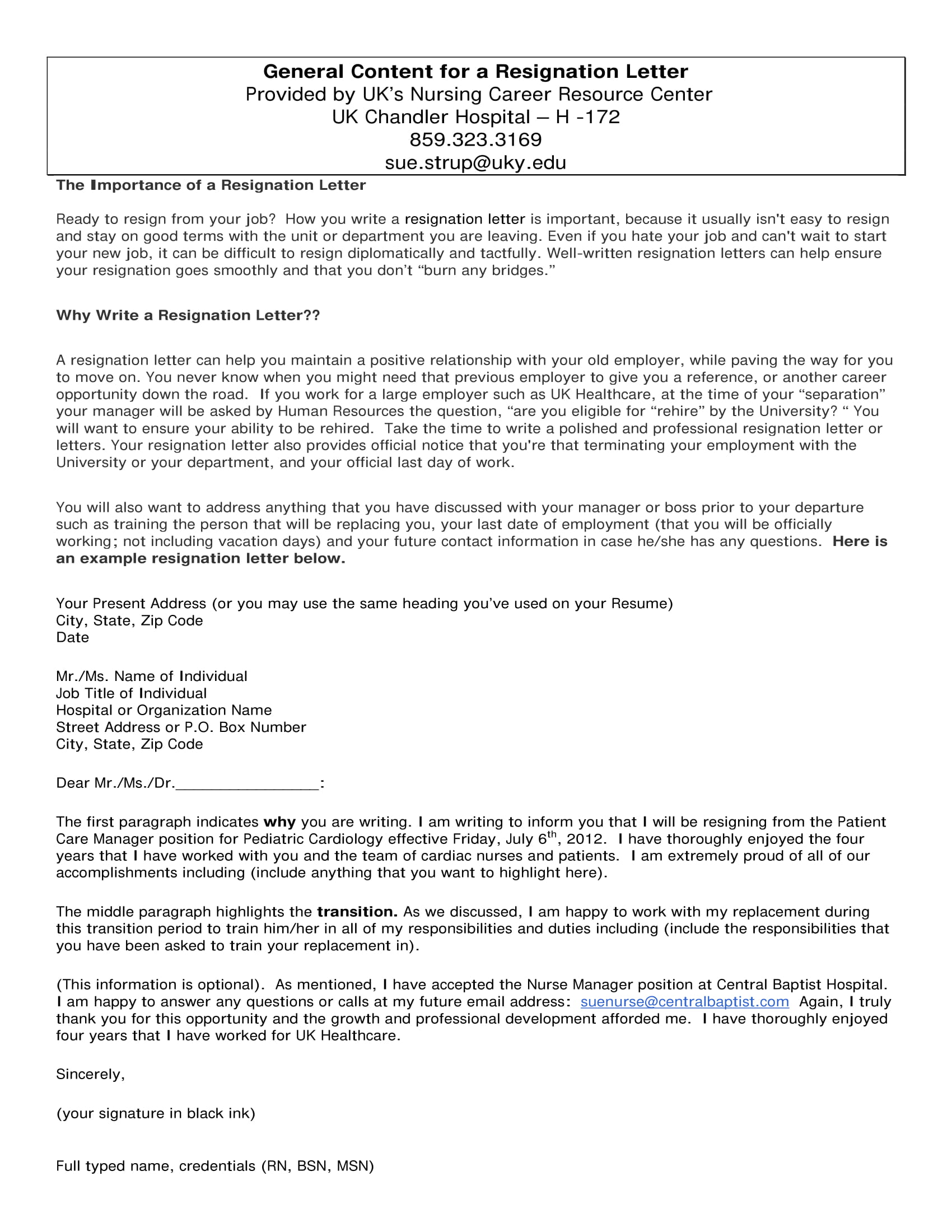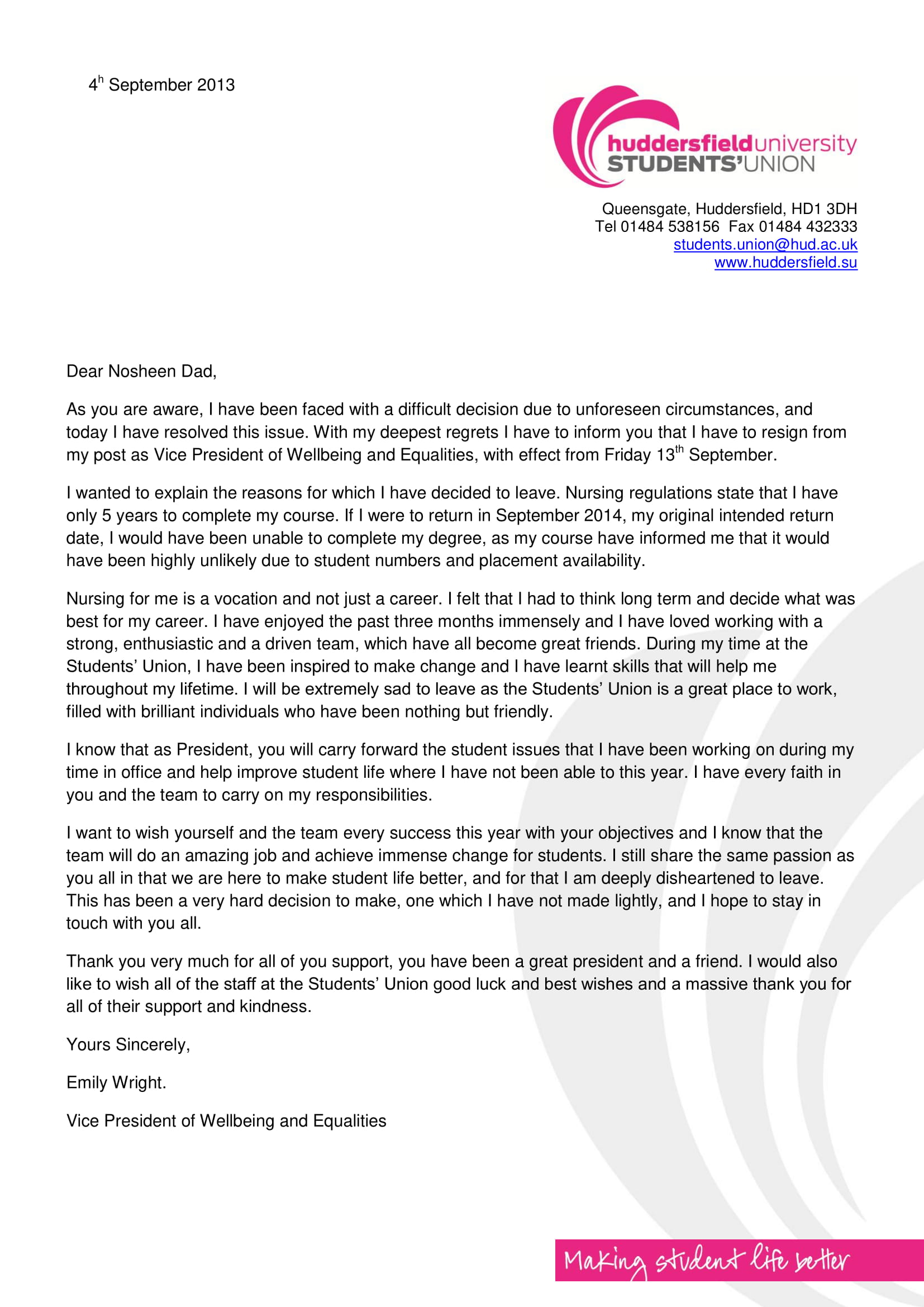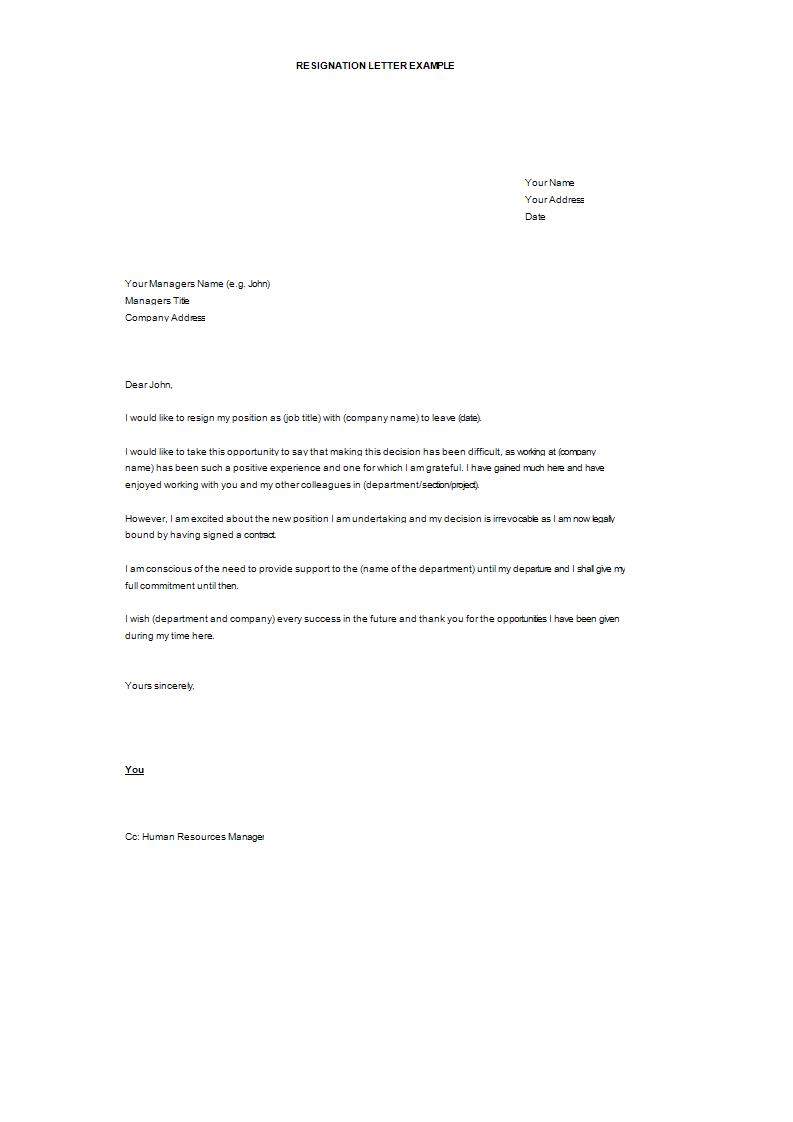10+ Official Resignation Letter Examples to Download
Although you have spent some amount of time working on your job, you may eventually find yourself wanting to explore more or wanting a job that pays more. Regardless of the time you have spent with your company if you are not as satisfied and happy as you were before, it’s normal to think about resigning. However, you may find it hard to write a resignation letter to clearly state your reason without offending the company. This guide will help you write a resignation letter that can effectively state your reasons while still maintaining the positive relationship you have had with with your employer.
As you may already know, there can be countless possible reasons why you would resign from your current job; it can be because the job is not related to your field of study, the management is not really that accommodating to the employees’ needs, the pay is not enough for your bills and necessities, and so much more. However, when you resign, you need to be able to remain professional and cordial; therefore, your resignation letter must be well-written and well thought out. With that in mind, what should you include in your resignation letter and how should you write it?

Purpose of Official Resignation Letter
Aside from your notice prior to your exact date of resignation, you resignation letter serves as your official notice and verifying document that you are legitimately resigning from your current position. It tells your employer of your decision to resign and remove yourself from the company. And although you have decided to exit from the company, your resignation letter also helps you still maintain the positive relationship you have with your employer.
In addition, your resignation letter also helps you explain your reason form resigning. It helps you briefly expand on why you have decided to resign from the company. It also helps you cordially express you gratitude for all the opportunities and experiences you have had with the company, and express how working for the company has helped you boost your career forward.
Most importantly, your resignation letter reiterates the exact date you will leave the company. Since the resignation letter is already expected because of your prior notice, the letter restates the date you will officially exit the company, thus, giving your employer enough time to do preparations and adjustments brought about your resignation. In addition, it is also your way to tell your employer if you are or aren’t able to help out during the transitioning of responsibilities to the person taking your place.
Official Resignation Letter Template
Marketing Coordinator Resignation Letter Example
Official Resignation Letter Format Example
Company Director Official Resignation Letter Example
What to Consider on Your Resignation Process
First, you should really consider your employer’s employment policies that have been stated in your primary employment contract or employee’s handbook; it should clearly state how long before you hand in your resignation notice, some companies require a 2–4 weeks resignation notice. Other than that, you should really consider your employer’s current situation following your resignation. Although it’s ultimately up to you whether or not you want to help or train teammates and colleagues adjust to your departure, it is better to tell your employer of your decision in advance.
Although you may want to check out of your job as soon as possible, it is better to use your remaining time to tie loose ends. You can use your remaining time in the company to help your colleagues settle all the responsibilities you will be leaving behind. You can try to at least finish your outstanding projects or at least leave them in a state where your manager or colleague can understand where you are currently at along will all the necessary information needed to complete the project should they take over.
In a lot of companies, you will be required to answer an exit interview when you resign. The exit interview will consist of questions regarding your roles and responsibilities as well as how well or how bad the management handled your employment. This means that you will have to answer them and provide feedback and constructive criticisms. It is necessary when you answer the exit interview honestly so that the company can use the criticism and feedback to improve their management style and strategies.
Lastly, there is a benefit to burning bridges. There is simply no reason to constantly complain about your new position and past problems. Even if there are a lot of things to complain about, it is always better to be the better person and exit the company professionally and gracefully. Remember that you may have the chance to see your employer and colleagues in the future and you may need a reference letter for your future employment, so it is always better to resign peacefully and positively.
Inspector General Official Resignation Letter Example
Resignation Letter Example
Contents of an Effective Official Resignation Letter
An effective resignation letter should contain all the necessary and relevant information. It must be able to convey all the things you have to say before you officially leave the company. As mentioned, it should be able to clearly explain the reason of your resignation. Listed below are the important contents that should be included in your resignation letter:
- Return Address – contains all your contact information (as the sender) such as name, address, contact numbers, email address, etc.
- Inside Address – consists of your employer or receiver’s name, designation or position in the company, company address, and contact details.
- Salutation – the introductory greeting you extend to your receiver. Usually starts with the salutation Dear followed by the name of the receiver.
- Introduction – the introduction of your resignation letter should immediately state the purpose why you are writing the letter, i.e., your decision to resign along with the specific date of your resignation.
- Explanation – the next paragraph following your introduction should briefly explain and expound on your decision for resigning. It should also include your expression of gratitude for the company.
- Offer – if applicable, you should state how or when you are available to help with the process that comes with the transition of your roles and responsibilities to the temporary replacement or new employee along with your contact details.
- Conclusion – in your conclusion, you should briefly mention how the company has helped you and reiterate your thanks to the company.
- Signature Line – your signature line consists of your name along with your affixed signature.
Formal Resignation Letter Example
School Teacher Resignation/Retirement Letter Example
Dos and Don’ts When Resigning from Your Job
You should know how to resign from your job properly so that you can preserve the relationship you have with your employer regardless of it being positive or negative. Most importantly, it helps you maintain your professional courtesy toward your soon-to-be previous employer. Here are some dos and don’ts when resigning from your job:
Dos
- Follow up with an official resignation letter after giving your two weeks notice.
- Remember your notice period or the termination period reflected on your contract.
- Be prepared to leave; pack and arrange your things and other obligations weeks or days before you actual resignation date.
- Politely say your goodbyes to your colleagues and immediate supervisor.
- Consult with your recruitment consultant to avoid trepidation during the resignation process.
Don’ts
- Don’t forget to personally talk with your employer regarding your decision.
- Don’t forget to extend your gratitude toward your employer.
- Don’t even think about breaking your confidentiality agreement as you can be liable to the law if so.
- Don’t bad mouth your company, employer, and colleagues; you may never know your stories can reach them and may negatively affect your professional image.
- Don’t forget why you decided to leave your job to avoid getting cold feet.
Patient Care Manager Resignation Letter Example
Letter of Resignation due to Education Example
Formal Resignation Letter Template Example
Conclusion
As you have read, a resignation letter is helpful in maintaining a professional image regardless of your decision to leave the job. It also helps you clearly tell your employer why you have decided to resign in the first place. Not only that, it also helps you restate the exact date of your resignation as you have mentioned in your resignation notice. It also lets you extend your feeling of gratitude to your employer for the opportunity the company has given you and the experiences that made you a better skilled worker. Lastly, it can greatly help you keep the relationship as cordial and respectful as it were before. We hope you have learned about how to write a resignation letter and how to professionally resign from your job.



